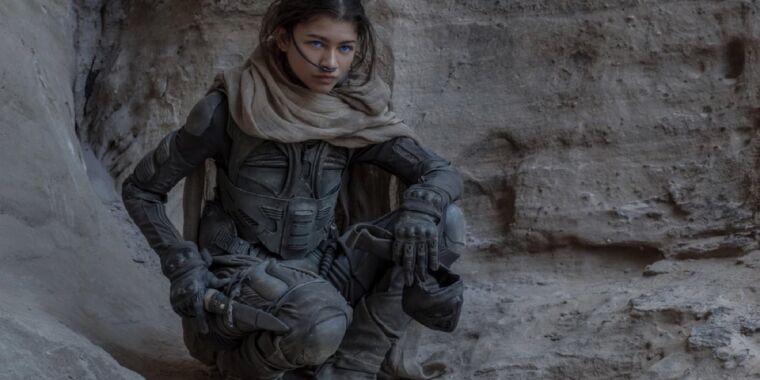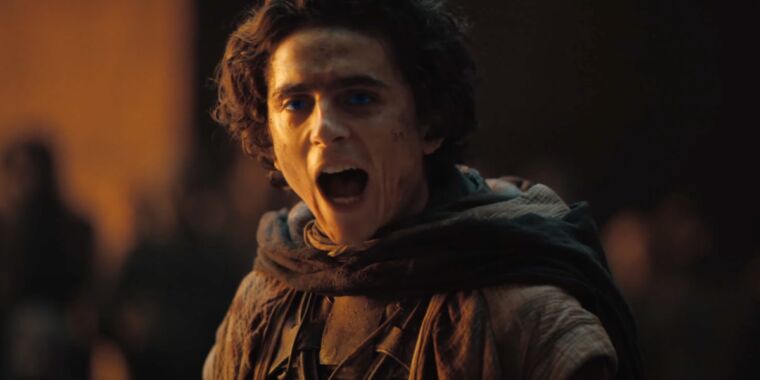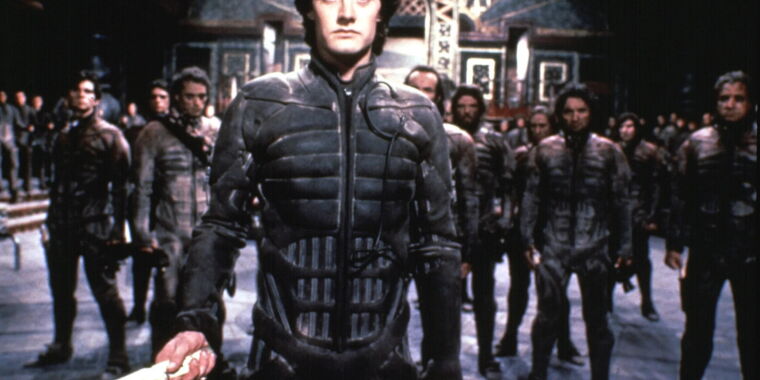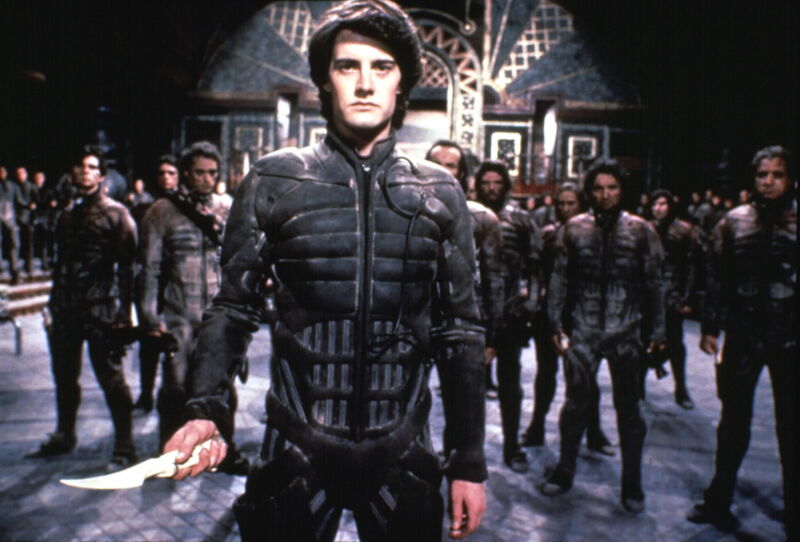Scientists built real-life “stillsuit” to recycle astronaut urine on space walks
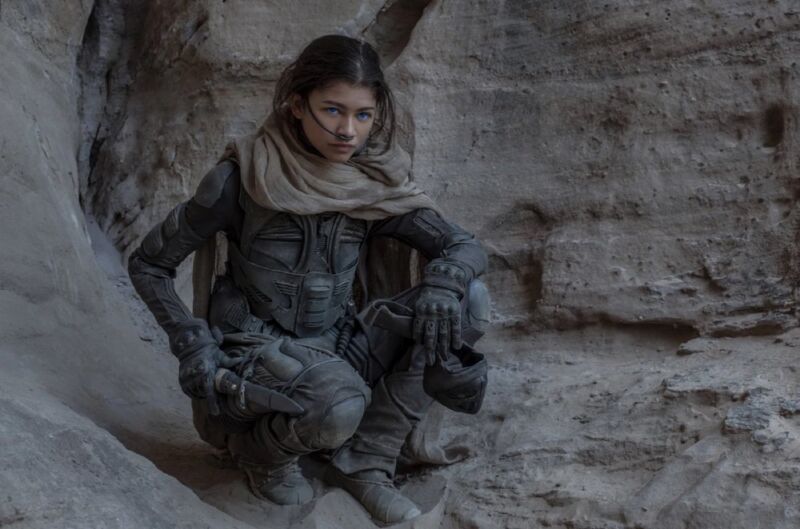
Enlarge / The Fremen on Arrakis wear full-body “stillsuits” that recycle absorbed sweat and urine into potable water.
Warner Bros.
The Fremen who inhabit the harsh desert world of Arrakis in Frank Herbert’s Dune must rely on full-body “stillsuits” for their survival, which recycle absorbed sweat and urine into potable water. Now science fiction is on the verge of becoming science fact: Researchers from Cornell University have designed a prototype stillsuit for astronauts that will recycle their urine into potable water during spacewalks, according to a new paper published in the journal Frontiers in Space Technologies.
Herbert provided specific details about the stillsuit’s design when planetologist Liet Kynes explained the technology to Duke Leto Atreides I:
It’s basically a micro-sandwich—a high-efficiency filter and heat-exchange system. The skin-contact layer’s porous. Perspiration passes through it, having cooled the body … near-normal evaporation process. The next two layers … include heat exchange filaments and salt precipitators. Salt’s reclaimed. Motions of the body, especially breathing and some osmotic action provide the pumping force. Reclaimed water circulates to catchpockets from which you draw it through this tube in the clip at your neck… Urine and feces are processed in the thigh pads. In the open desert, you wear this filter across your face, this tube in the nostrils with these plugs to ensure a tight fit. Breathe in through the mouth filter, out through the nose tube. With a Fremen suit in good working order, you won’t lose more than a thimbleful of moisture a day…
The Illustrated Dune Encyclopedia interpreted the stillsuit as something akin to a hazmat suit, without the full face covering. In David Lynch’s 1984 film, Dune, the stillsuits were organic and very form-fitting compared to the book description, almost like a second skin. The stillsuits in Denis Villeneuve’s most recent film adaptations (Dune Part 1 and Part 2) tried to hew more closely to the source material, with “micro-sandwiches” of acrylic fibers and porous cottons and embedded tubes for better flexibility.
Enlarge / In David Lynch’s 1984 film, Dune, the stillsuits were organic and very form-fitting.
Universal Pictures
The Cornell team is not the first to try to build a practical stillsuit. Hacksmith Industries did a “one day build” of a stillsuit just last month, having previously tackled Thor’s Stormbreaker ax, Captain America’s electromagnetic shield, and a plasma-powered lightsaber, among other projects. The Hacksmith team dispensed with the icky urine and feces recycling aspects and focused on recycling sweat and moisture from breath.
Their version consists of a waterproof baggy suit (switched out for a more form-fitting bunny suit in the final version) with a battery-powered heat exchanger in the back. Any humidity condenses on the suit’s surface and drips into a bottle attached to a CamelBak bladder. There’s a filter mask attached to a tube that allows the wearer to breathe in filtered air, but it’s one way; the exhaled air is redirected to the condenser so the water content can be harvested into the CamelBak bladder and then sent back to the mask so the user can drink it. It’s not even close to achieving Herbert’s stated thimbleful a day in terms of efficiency since it mostly recycles moisture from sweat on the wearer’s back. But it worked.
Scientists built real-life “stillsuit” to recycle astronaut urine on space walks Read More »
